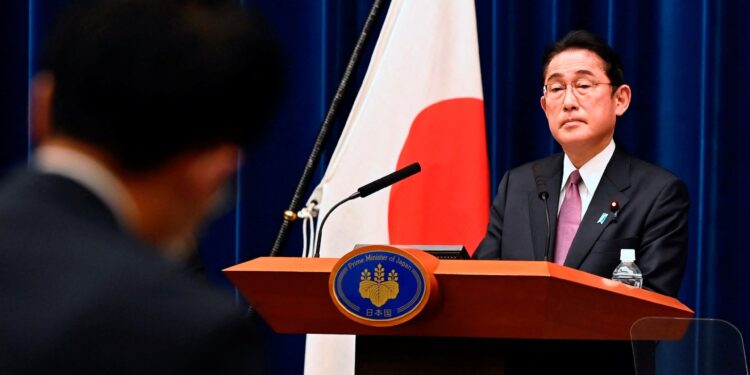The Japanese House of Representatives approved the government’s budget for the next fiscal year in an extraordinary session on Saturday, and this approval is an important political victory for Prime Minister Fumio Kishida amid declining public support for him.
Reuters reports that the budget amounting to 112 trillion yen ($746 billion) – including funds allocated for relief efforts following the recent earthquake that struck the Noto Peninsula – is expected to be approved on the first of next month from the beginning of the fiscal year, regardless of… Developments in the less powerful Senate.
These developments come at a critical juncture for Prime Minister Kishida, who made history this week as the first Japanese prime minister to appear before the Parliamentary Ethics Committee.
This step was part of Kishida’s strategy to put an end to the financing scandal that affected his popularity, according to Reuters.
Recent poll data issued by public broadcaster NHK paints a difficult picture for the prime minister, with his approval rating at only 25%, and support for his ruling Liberal Democratic Party at about 30%.
Reuters notes that the lower house of the Japanese parliament, which meets irregularly on Saturdays, played a pivotal role in ensuring timely approval of the budget, which added importance to the influential political dynamics.
The budget, which includes relief funds for the recent Noto Peninsula earthquake, reflects the government’s commitment to addressing the immediate challenges facing the nation.
Despite the political headwinds, the agency quoted Kishida as confident that the approved budget will facilitate initiatives for the country’s well-being.
In his defense before the parliamentary ethics committee, Kishida addressed the financing scandal that has cast a shadow over his leadership. By confronting the issue head-on and appearing before the committee, Kishida aimed to convey transparency and a commitment to accountability.
However, challenges remain clear as public discontent continues to be reflected in opinion polls. The Prime Minister’s proactive participation in the Ethics Committee signals a shift toward greater accountability in Japanese politics.
Reuters says that the decline in popularity of Kishida and the Liberal Democratic Party reflects the broader challenges facing the government, and requires strategic recalibration.
She continues that the approval of the budget, despite these challenges, confirms the prioritization of national interests and the government’s determination to guide the country through turbulent times. As the fiscal year approaches, all eyes are on the potential impact of this budget on Japan’s economic recovery and the government’s ability to regain public confidence.
Reuters concludes that the approval of the government budget in the House of Representatives represents a major political victory for Prime Minister Kishida, and provides a glimmer of hope amid declining popular support.
The coming fiscal year holds the promise of addressing pressing issues, ranging from earthquake relief to broader economic recovery. However, the Prime Minister faces an uphill battle to regain the public’s trust, and the road ahead requires navigating the political challenges and complexities of governance.



